By striking Haifa twice, Iraqi resistance proves Zionist entity is a tinderbox
By Wesam Bahrani
Amid the Israeli regime’s genocidal war on the besieged Gaza Strip, the Axis of Resistance has significantly upped operations against the occupying entity, including the Islamic Resistance in Iraq.
In recent weeks, the Iraqi resistance has not only targeted the illegal military bases of the Israeli regime’s key ally and benefactor, the United States but also struck deep inside the occupied territories.
In a latest statement, the Islamic Resistance in Iraq announced that it struck a vital target, deep inside the Israeli-occupied territories, with a long-range cruise missile.
The Iraqi resistance said it used the al-Arqab long-range missile, which it has modified, to carry out the operation "in solidarity with the Palestinian resistance and people of Gaza against the Zionist aggression".
The statement also vowed to continue striking "the enemy’s strongholds," promising the Islamic world of more operations in the next phase.
Sources have now revealed that the target struck was an oil refinery in Haifa Bay.
It marks the second time the Islamic Resistance in Iraq has targeted vital sites in Haifa since the Israeli regime waged its indiscriminate war on the 2.3 million starving population of the Gaza Strip on Oct. 7.
Israeli media initially reported a large explosion in Haifa Bay close to the port of Haifa in the Israeli-occupied Palestinian territories.
On Saturday, the Israeli fire department reported an explosion at the Carmel Olivens oil refinery reactor, attributing the blast to "high pressure in the casing".
The regime's news outlets subsequently published inconsistent reports on the reasons behind the explosion, with some calling it a “statistical phenomenon that occurs sometimes” and hastening to add that “the reasons (behind the explosion) are still under investigation."
Last Sunday, the spokesman for the armed wing of the Hamas resistance movement, the Izz ad-Din al-Qassam Brigades, delivered a thumping speech, marking 100 days of the Israeli war on Gaza.
In the televised address, Abu Ubaida said Hamas has received messages from "several parties in the resistance fronts that they will expand their strikes on the Zionist enemy in the coming days."
The notable "parties" who have been militarily active in support of the Palestinians in Gaza that Abu Ubaida was referring to are Lebanon’s Hezbollah, Yemen's Ansarullah and the Islamic Resistance in Iraq.
He saluted, praised, and expressed gratitude for their operations and sacrifices for Palestine.
This week has seen a development in the quantity and quality of operations carried out by the Islamic Resistance in Iraq on various targets, including illegal US bases in Iraq and deeper into Syria.
A devastating attack on the Ain al-Assad base left several US soldiers injured, most of them with severe brain injuries, which means they are impaired for life.
The support for Gaza originated from the idea that the aggression against Gazans is an American-Zionist aggression, to pressure the occupation to stop its genocidal war and ended in the conclusion that this would require the use of legitimate force against both parties.
The surge in attacks against illegal US bases scattered across Iraq and Syria is a means of uprooting the illegal US occupation in the two countries, which will also pave the way for the end of the Israeli occupation, as both are deeply connected.
Striking Haifa for a second time in less than a month, a vital and sensitive target is a major development and of utmost strategic importance.
Haifa is home to sensitive facilities, including its seaport, airport and three power plants. It also includes the Haifa Petrochemical Complex, which is one of the most important and sensitive economic centers for the regime. The complex hosts many facilities that process and store petrochemical materials.
This makes Haifa a ticking time bomb.
From an economic aspect, the most important and largest facility that the occupying regime depends on is Haifa's naval port. The regime relies heavily, potentially up to 90% of its trade, on seaports to import and export goods.
Among the three maritime ports in the Israeli-occupied Palestinian territories (Haifa, Eilat, and Ashdod), Haifa is considered the vital artery for Israeli trade.
The raining down of Iraqi resistance missiles has had a major impact on the port, which is located in a protected bay, allowing the entry and exit of ships without interruption.
Haifa Port stations allow larger container ships to dock and transport goods such as grains, chemicals, vehicles, and fuel, among other commodities.
Approximately 30 million tons of goods pass through the port annually, more than any other port in the occupied territories.
The port, which is located next to the busiest shipping routes in the world, whether arriving to or departing from the Suez Canal, is considered the most innovative and advanced in the occupied Palestinian territories and is managed in a computerized, efficient, and expedited manner.
The importance of Haifa Port is not limited to its economic role but also extends to the port’s important military location, which contains nuclear and non-conventional weapons.
Nearby is the Polonium naval weapons base, which hosts missiles with nuclear warheads.
This is the same base that is home to the Zionist entity's military submarines, in particular the Dolphin class, which are capable of carrying missiles loaded with nuclear warheads.
Haifa Port is also where Israeli warships and their manufacturers are thoroughly inspected before firing on Gaza's women and children.
It is also of strategic importance to the US, which considers Haifa a key point in a new trade corridor linking India to Europe via West Asia.
The project is considered by Washington as its response to China's Belt and Road initiative.
Considering the economic and military importance of the port, and Haifa’s position as a gateway to the Eastern countries of the Mediterranean, the Iraqi resistance strikes will directly affect the port's efficiency and other vital sites and it already is showing the impact.
Any disruption could paralyze the economic and commercial movement in the occupied Palestinian territories, especially as Yemen is conducting military operations against Israeli and Israeli-affiliated vessels sailing in the Red Sea.
By the same token, the Iraqi resistance wants to send military and political messages in multiple directions, starting with its iron-clad support for Gaza and ending with threatening US projects in West Asia.
Essentially, the Islamic Resistance in Iraq is saying it has the armed prowess and intelligence to target sensitive and vital Israeli regime-controlled sites inside occupied Palestine.
The military operations are affecting the rules of engagement, which, under the current climate, have the scope to expand.
Depending on whether the Israeli occupation escalates its aggression against Gaza, widens the confrontation with regional countries, or its cowardly assassination campaigns.
The goal of the resistance is to disrupt and complicate US strategies while directly confronting the Zionist occupation’s massacres in Gaza.
The Iraqi resistance strikes also convey a political message that the Palestinian resistance has allies who stand by it and will never abandon their struggle for justice and freedom.
Among the basic demands of the Iraqis are an end to the Israeli aggression on Gaza, the withdrawal of the Israeli military from the territory, and the entry of essential humanitarian supplies.
Ansarullah has also stated this during its operations against Israeli and US ships in the Red Sea.
Hezbollah has echoed the same stance in its extensive exchange of fire with the regime's military in Southern Lebanon.
So, the writing is on the wall: The Axis of Resistance is united in support of the Palestinian resistance and that is not good news for the illegitimate entity already teetering on the brink.
Wesam Bahrani is an Iraqi journalist and commentator.
(The views expressed in this article do not necessarily reflect those of Press TV.)
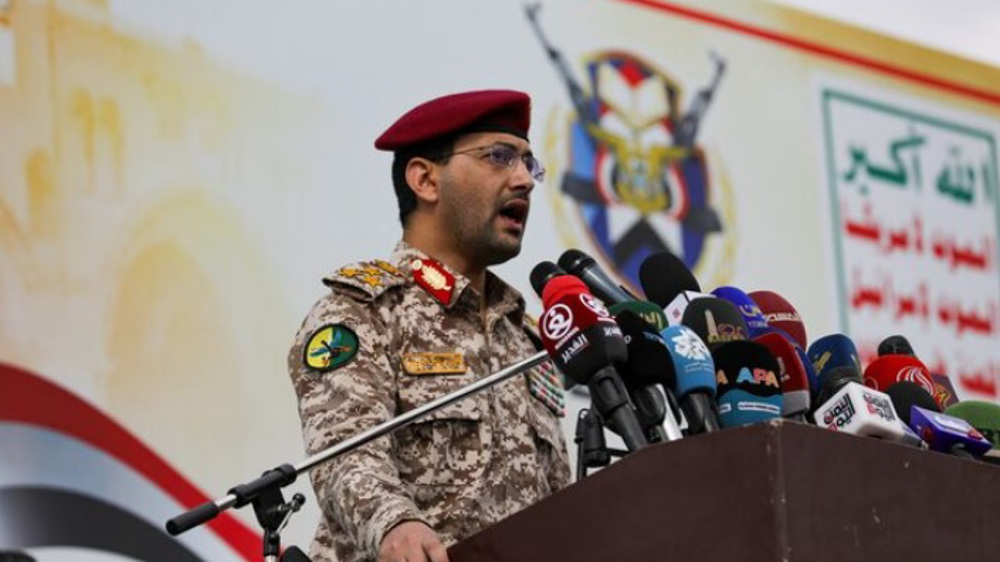
Yemini forces say they launched attacks on Israeli sites, US warships

MSF: 70% of burn victims in Gaza are children, little chance of recovery
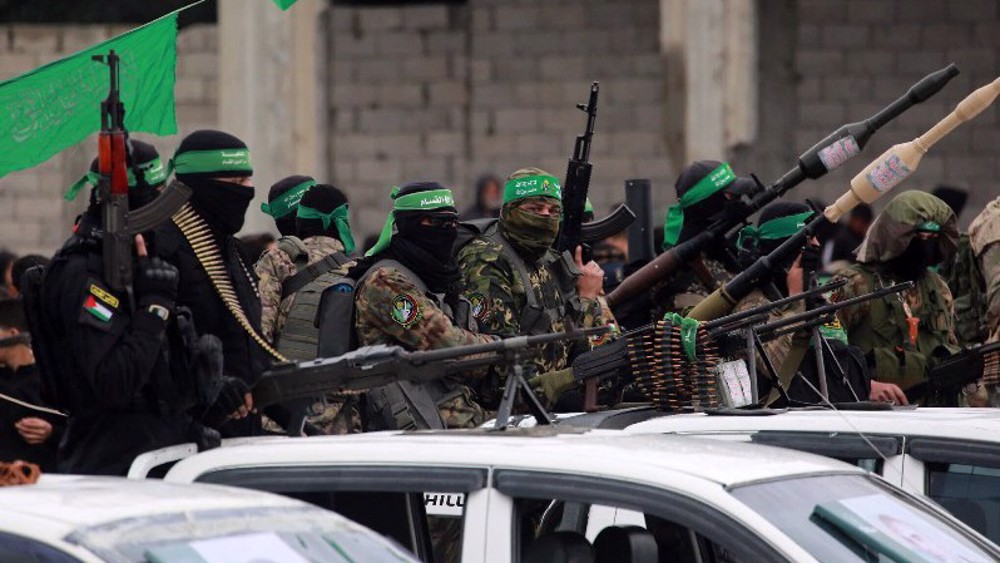
Hamas: No partial truce, only comprehensive deal acceptable
Pezeshkian arrives at port blast site to monitor response operations
VIDEO | Press TV's news headlines
Betar US: America's new face of Zionist terrorism and the darker rebirth of Kahanism
‘More serious than before’: Iran-US talks enter critical phase amid hope and caution
Pezeshkian’s visit to Baku heralds new order in South Caucasus
VIDEO | Eight killed, six injured after car rams into crowd at Vancouver Filipino festival
Keffiyeh-wearing Jewish woman assaulted by pro-Israel mob in New York
Hezbollah, Hamas, Islamic Jihad express solidarity with Iran after deadly port explosion


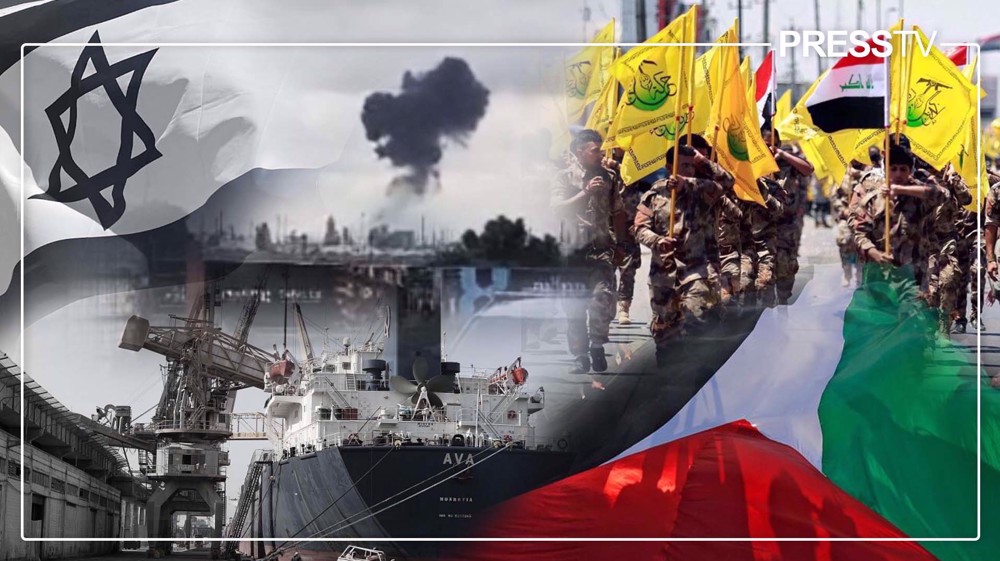
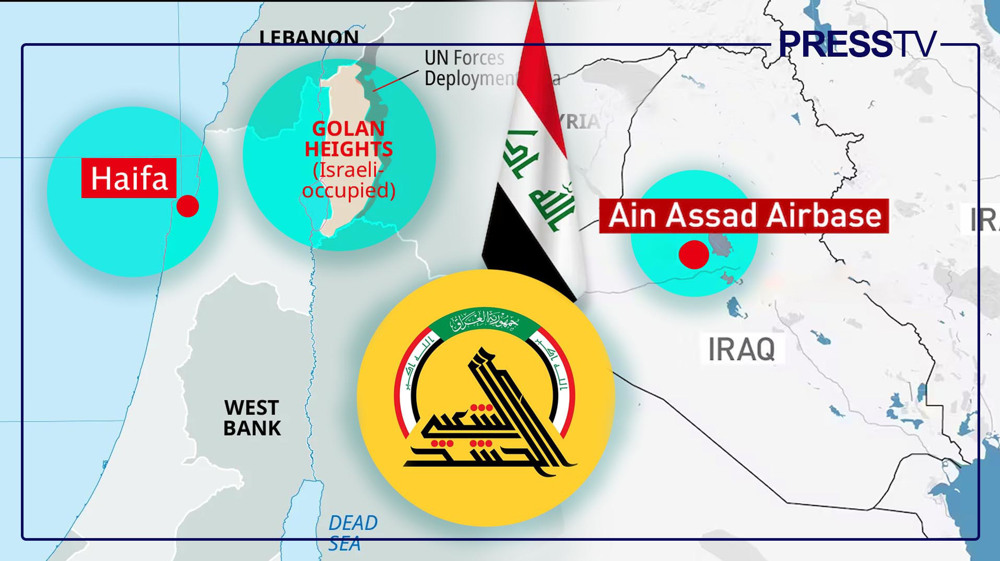
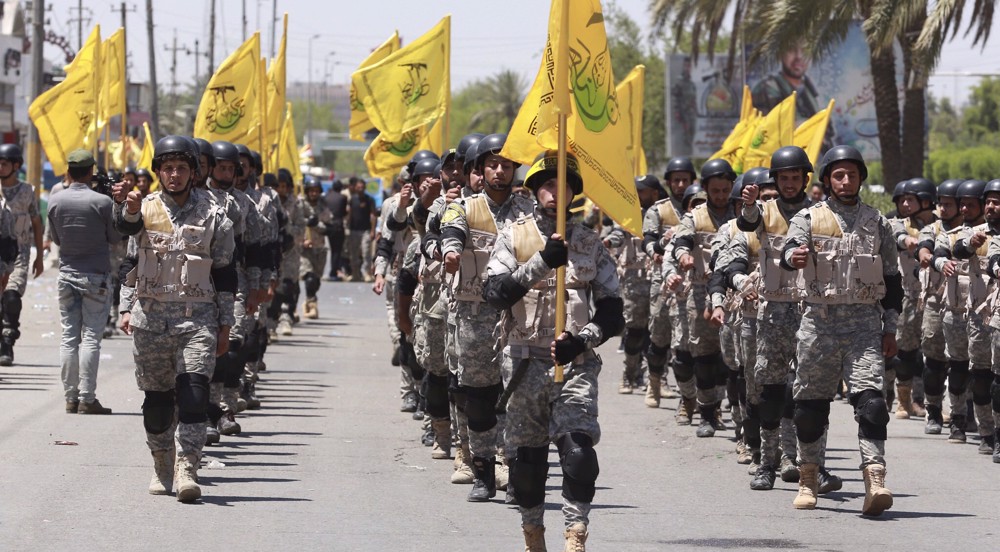



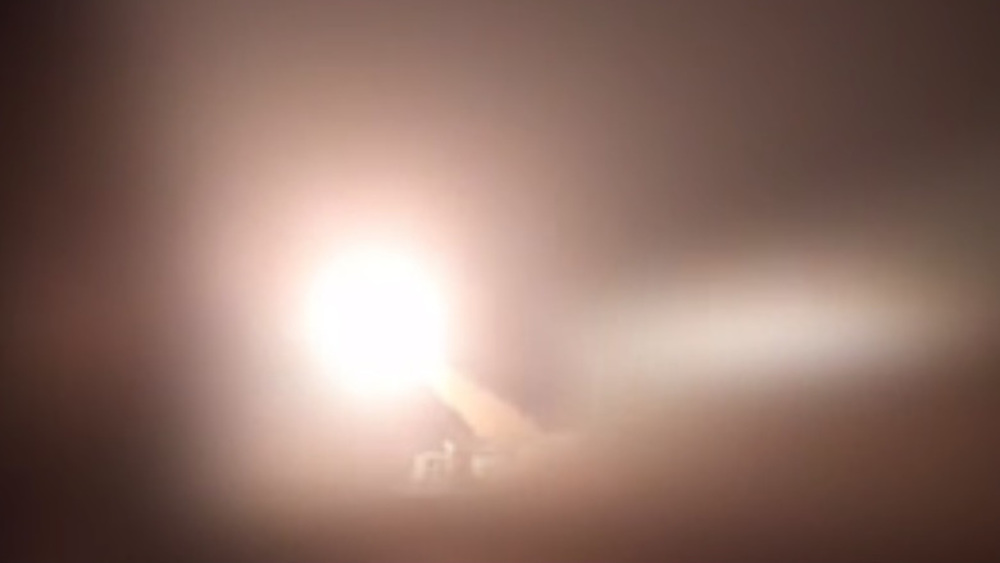
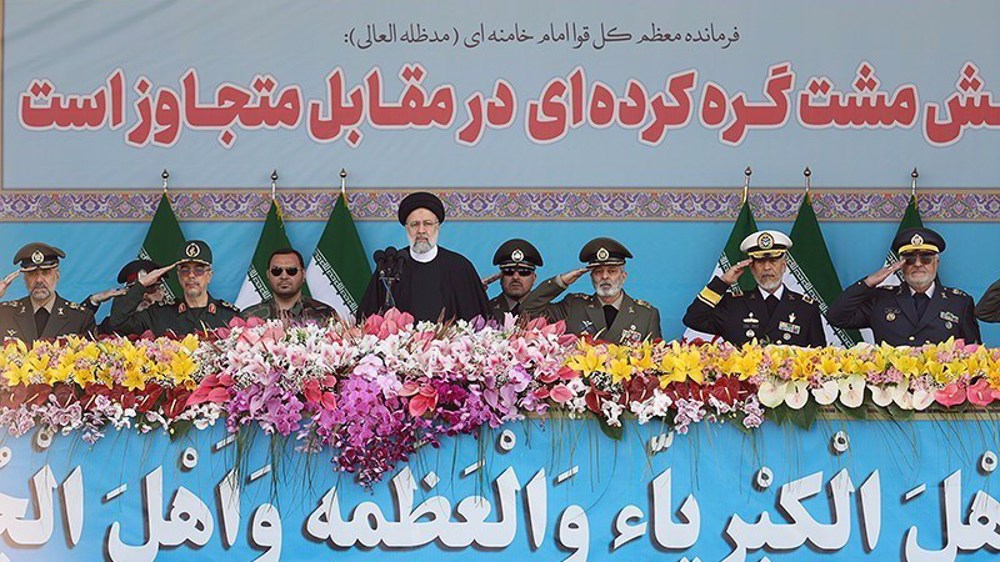
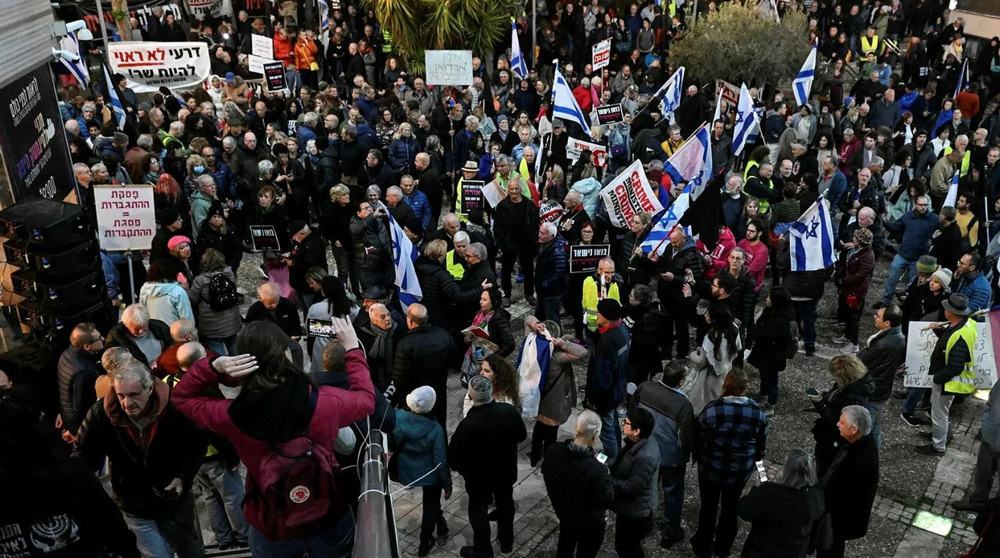
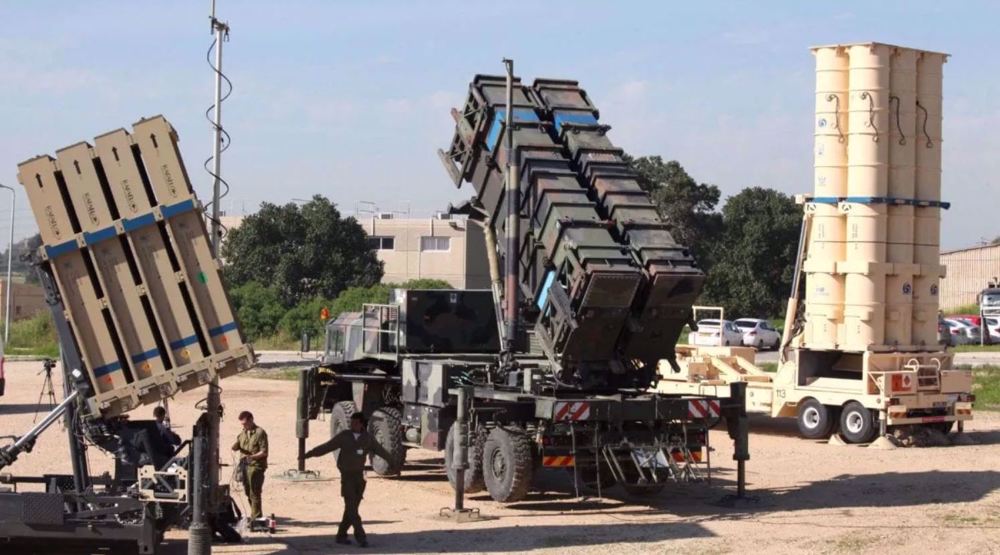
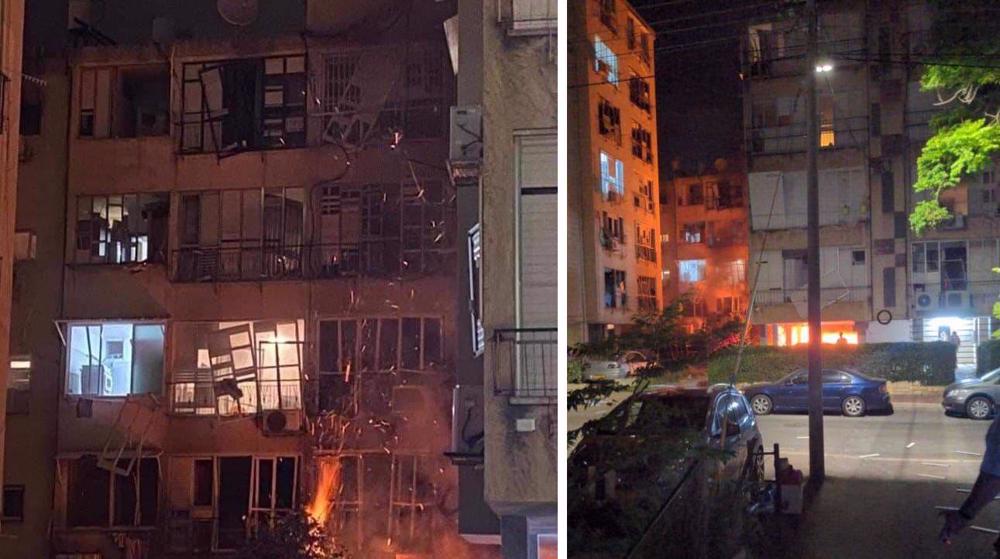

 This makes it easy to access the Press TV website
This makes it easy to access the Press TV website